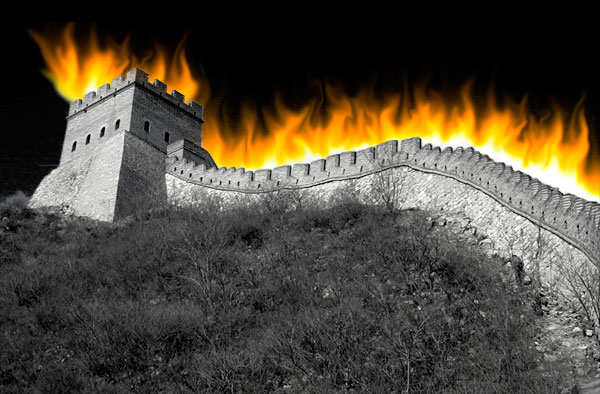The Great Firewall
“THE first e-mail sent from China, on September 14th 1987, was optimistic: “Across the Great Wall we can reach every corner in the world.” Few of China’s 560m internet users now have such reach, however, because China tightly controls its people’s use of the internet. The “Freedom on the Net 2012” report, issued by Freedom House, an American organisation that tracks global trends in political freedom, ranked China as the third most restrictive country in the world when it comes to internet access, after Iran and Cuba (though this ranking excludes those places, such as North Korea, where ordinary people are not allowed to use the internet at all). How does China censor the internet?
The Chinese central government has two main ways of controlling what its citizens see on the web: the Great Firewall, as it is called by foreigners, which is a system of limiting access to foreign websites which started in the late 1990s, and the Golden Shield, a system for domestic surveillance set up in 1998 by the Ministry of Public Security. Separate government departments, along with local and provincial administrations, also have their own monitoring systems. China began by blocking a list of foreign websites, including Voice of America, human-rights organisations and some foreign newspapers. But its filters havesince become more sophisticated and can now selectively block specific pages within foreign websites, rather than making the entire site inaccessible. They can also block particular terms when they are used in search queries or instant messages. Google is not blocked entirely; instead, users who search for banned keywords are blocked from Google for 90 seconds, though other websites remain available. China’s many internet companies are regularly issued with lists of restricted keywords, and often censor blog posts and other content pre-emptively to avoid trouble with the authorities. In all there are thought to be around 100,000 people, employed both by the state and by private companies, policing China’s internet around the clock. Since 2005 the state has also paid people, known as the “50 Cent Party”, to post pro-government messages and steer online conversations away from sensitive topics.”
For the full stories click the link under the image.






 This is the default footer layout. You can easily add or remove columns in the footer.
This is the default footer layout. You can easily add or remove columns in the footer.
Recent Comments